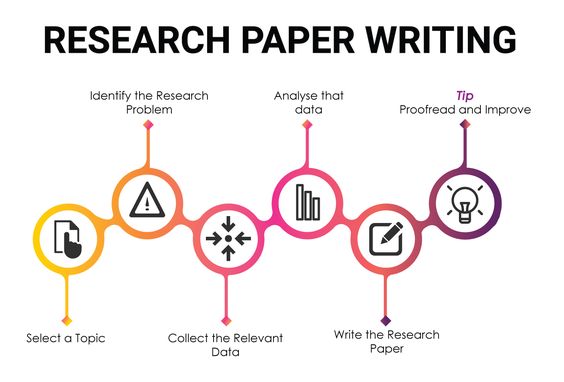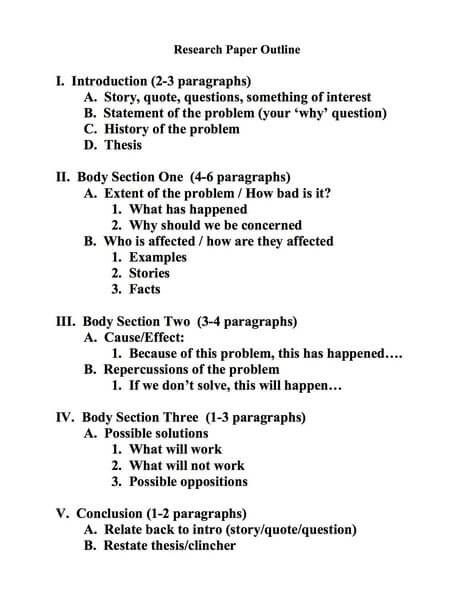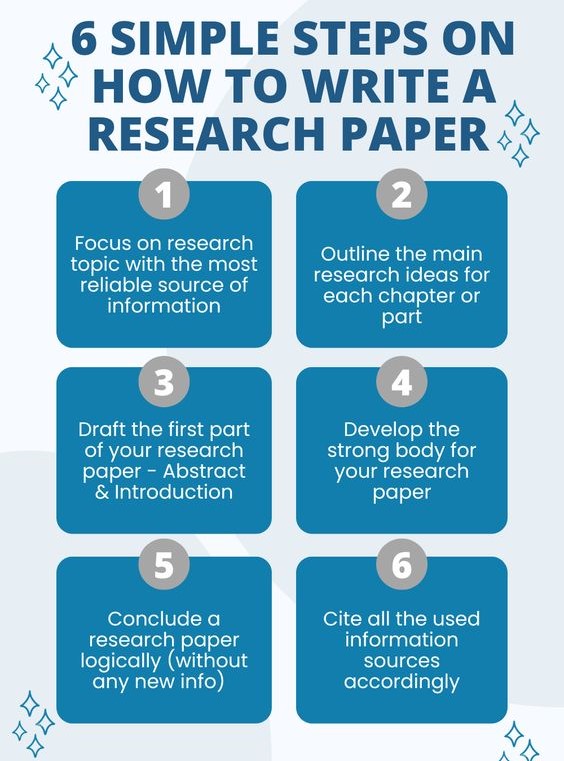Academic research is the backbone of intellectual progress. It's the process of systematically investigating a topic, analyzing data, and drawing conclusions that contribute to the advancement of knowledge. Whether you are a student or a seasoned scholar seeking to embark on academic research, it is very important to understand the fundamentals of effective research.
This guide will equip you with essential tips and techniques to navigate the complexities of academic exploration, ultimately leading to impactful research paper writing.
What is a Research Paper?
A research paper is a formal, in-depth exploration of a specific topic, written to present the findings of original research or to analyze and synthesize existing knowledge. It's a key component of academic life, often required in higher education and used to contribute to the advancement of knowledge in a particular field.
Here are some key characteristics of a research paper:
- Focus on a Specific Research Question: A research paper doesn't simply discuss a general topic. It delves into a focused question, providing a clear and specific direction for the research.
- Evidence-Based Argument: The paper presents a well-supported argument, using credible sources and data to back up its claims. Evidence can come from original research, experiments, interviews, surveys, or analysis of existing data.
- Structured Format: Research papers follow a standardized format, typically including sections like:
- Introduction: Presents the research question, the significance of the topic, and the paper's overall argument.
- Literature Review: Summarizes and analyzes existing research on the topic, identifying gaps in knowledge and framing the current study.
- Methodology: Describes the research methods used, including data collection techniques and data analysis strategies.
- Results: Presents the findings of the research in a clear and objective manner, often using tables, graphs, or charts.
- Discussion: Interprets the results, connects them to the research question, and discusses their implications.
- Conclusion: Summarizes the key findings, reiterates the significance of the research, and proposes directions for future research.
- References: Provides a complete list of all sources cited in the paper.
- Academic Style: Research papers are written in a formal, objective, and unbiased style. They avoid jargon and colloquialisms, using precise language and avoiding personal opinions or biases.
- Rigorous Peer Review: In many cases, research papers are subjected to a rigorous peer review process before publication. This involves experts in the field evaluating the quality of the research, methodology, and writing, ensuring that the work meets high academic standards.
The Purpose of Research Papers
- Advance Knowledge: Research papers contribute to the body of knowledge in a field, building upon existing research and uncovering new insights.
- Showcase Original Research: They allow researchers to present the findings of their original research, sharing their discoveries and contributing to the advancement of their field.
- Develop Critical Thinking Skills: Writing a research paper requires careful analysis, synthesis, and evaluation of information, developing critical thinking skills.
- Contribute to Academic Discourse: Research papers contribute to the ongoing dialogue within a field, challenging existing ideas, proposing new perspectives, and sparking further research.
- Demonstrate Scholarly Abilities: Research papers are often used in academic settings to demonstrate a student's ability to conduct research, analyze information, and present findings in a scholarly manner.
In short, research papers are essential tools for disseminating new knowledge, engaging in critical analysis, and contributing to the advancement of understanding within specific fields.
Strategies for Research Paper Writing

1. Define Your Research Question:
The cornerstone of any research project is a well-defined research question. This question serves as your guiding star, shaping the scope and direction of your investigation. It should be clear, specific, and answerable within the context of your study. To formulate a compelling question, consider:
- Relevance: Is your question significant and relevant to your field of study?
- Feasibility: Do you have the resources and time to address the question effectively?
- Clarity: Is the question unambiguous and easily understood?
Once you have a solid research question, you can start to formulate your hypothesis, a tentative explanation or prediction that you will test through your research.
2. Conduct a Thorough Literature Review:
Before diving into original research, it's essential to familiarize yourself with existing knowledge on your chosen topic. A comprehensive literature review involves carefully examining relevant articles, books, and other scholarly sources to gain a comprehensive understanding of the current state of research, identify gaps in knowledge, and refine your research question.
- Database Exploration: Utilize online databases like JSTOR, PubMed, and Google Scholar to search for relevant academic publications. It is also advisable to check trusted academic writing websites like Nursing Papers for scholarly materials to inspire your research.
- Keyword Strategies: Employ strategic keyword combinations to narrow your search results and discover the most relevant sources.
- Critical Evaluation: Analyze the strengths and limitations of each source, considering its methodology, findings, and impact within the field.
- Note-taking and Organization: Maintain detailed notes and create a bibliography to track your sources and facilitate the writing of your research paper.
3. Select Appropriate Research Methods:
The choice of research methods depends on your specific research question and the nature of your topic. Some common research methods include:
- Quantitative Research: This approach focuses on collecting numerical data through surveys, experiments, and statistical analysis. It allows for testing hypotheses and drawing conclusions based on quantifiable evidence.
- Qualitative Research: Qualitative research delves into the nuances of human experience through interviews, focus groups, and observations. It aims to understand perspectives, beliefs, and social interactions.
- Mixed Methods Research: This approach combines both quantitative and qualitative methods to gain a more holistic understanding of a phenomenon.
4. Gather Data and Analyze Findings:
Once you have chosen your research methods, it's time to collect data. Depending on your approach, this may involve administering surveys, conducting interviews, collecting archival data, or observing phenomena. Ensure your data collection methods are ethical, reliable, and valid.
5. Organize and Interpret Your Results:
After gathering your data, analyze it systematically to extract meaningful insights. This may involve statistical analysis, thematic analysis, or other appropriate techniques. Look for patterns, trends, and anomalies within your data, and consider how they relate to your research question and hypothesis.
6. Communicate Your Findings:
The final step in the research process is to communicate your findings to others. This is typically done through research paper writing, a form of academic communication that requires careful attention to structure, clarity, and evidence-based reasoning.
7. Write a Clear and Concise Research Paper:
Research paper writing involves presenting your findings in a structured and engaging manner. Here are some key elements to consider:

- Introduction: This section provides context for your research and introduces your research question, hypothesis, and the significance of your study.
- Literature Review: Summarize and synthesize previous research on your topic, highlighting key findings and identifying gaps in knowledge.
- Methodology: Describe your research design, methods, and data collection techniques in detail.
- Results: Present your findings objectively, using tables, figures, and statistical analysis as needed.
- Discussion: Interpret your results, discuss their implications, and connect them to existing literature.
- Conclusion: Summarize your key findings, highlight the significance of your research, and suggest avenues for future research.
- References: Provide a complete list of all sources cited in your research paper.
8. Refine and Edit Your Work:
Before submitting your research paper, it's crucial to revise and edit your work meticulously.
- Grammar and Style: Ensure your writing is free of grammatical errors, typos, and stylistic inconsistencies.
- Clarity and Conciseness: Check that your sentences are clear, concise, and easy to understand.
- Logical Flow: Ensure that your paragraphs and sections flow logically and effectively convey your ideas.
9. Seeking Feedback, Revising and Publishing Your Research
Before submitting your final draft, seek feedback from mentors, peers, or experts in your field. Consider their suggestions carefully and revise your research paper accordingly.
Once you have completed your revisions, consider submitting your research paper to an academic journal or conference for publication. This allows your work to reach a wider audience and contribute to the advancement of knowledge.
Beyond the Basics: Additional Tips for Effective Research
- Stay Organized: Utilize folders, databases, and note-taking systems to organize your research materials and ensure you can easily access them.
- Time Management: Set realistic deadlines and allocate sufficient time for each stage of the research process.
- Collaborate with Others: Engage in discussions with colleagues or mentors to gain new perspectives and insights.
- Be Patient and Persistent: Research is an iterative process, and it may take time to refine your research question, collect data, and interpret results. Don't be discouraged by setbacks, and continue to refine your approach as you progress.

Conducting academic research is a challenging but rewarding endeavor. Therefore, by following these tips, you can ensure your research is rigorous, impactful, and ultimately contributes to the advancement of knowledge. Remember, research paper writing is a critical aspect of the process, allowing you to share your findings with a wider audience and engage in the ongoing dialogue within your field. With dedication, persistence, and a thirst for knowledge, you can embark on a journey of discovery and make a meaningful contribution to your chosen discipline.
Get the Best Research Paper Writing Services
Writing research papers is a mandatory assignment for college and university students. Although you can still accomplish the tasks on your own, obtaining professional research paper writing service from Exemplary Dissertations can save you the stress and ensure top notch papers for success. Our services cover a wide range of courses and disciplines including nursing, engineering, hospitality, business management, marketing and law.